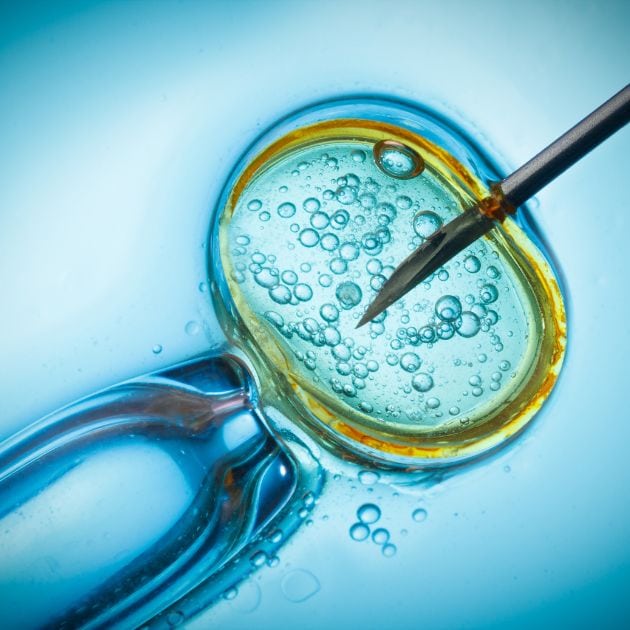Wouldn’t it be amazing if growing a family was as simple as flipping a switch? If it was as easy as throwing away your condoms and birth control pills and jumping into the sack with your partner? The need for a fertility doctor would be obsolete in this hypothetical world, which is exactly how we all wish it could be.
But for many, instant fertility is a pipe dream, and getting pregnant is more complicated than we realize.
One of the first hurdles many hopeful parents experience is figuring out whether they actually have a fertility problem that needs addressing. Is lack of conception a product of bad timing, not enough sex, or some reproductive issue requiring treatment?
You’re not alone if you can’t decide whether it’s time to make an appointment for your fertility concerns. But how do you go about even making that appointment??
While your first instinct might be to head to your gynecology office, there are actually more specific gynecology offices that deal with infertility.
Before you start scrolling through search engines for local fertility clinics, you need to figure out the best first steps for your unique situation.
If you’re interested in learning more about when to seek help for conception troubles and who to get that help from, stick with us. The information below will break down reproductive medicine’s who, what, when, where, and why.

This site contains affiliate links, meaning that we earn a small commission for purchases made through our site. We only recommend products we personally use, love, or have thoroughly vetted.
- Do You Need Fertility Support?
- Can a Gynecologist Help You Get Pregnant?
- Should You See a Fertility Specialist or OB/GYN for Infertility Treatment? What’s the Difference?
- What is a Fertility Doctor Called?
- Fertility Treatment Options Your Doctor Might Suggest
- Make an Appointment with Your Doctor if You Have Questions About Your Reproductive Health
- Infertility Link Round-Up
Do You Need Fertility Support?
Let’s start with the basics–do you even need to see a doctor yet?
Remember that magical baby-making switch we talked about at the beginning of the article? Do you also remember how I said it’s not a real thing? Despite what many believe, pregnancy doesn’t occur at the snap of our fingers.
You might assume that having sex without protection a couple of times is all it takes to get pregnant, but that’s not the reality, at least not for most of us.
Research shows that most people will conceive within ONE YEAR if they have regular sex without protection. That doesn’t necessarily mean it will take a whole year to get pregnant, but it can.
Most doctors won’t even see patients under the age of 35 until they’ve gone a year without a positive test result or viable pregnancy.
Those over 35 or approaching perimenopause will often be seen if they’ve gone 6 months without a positive test.
Just because it’s been a few months without a pregnancy doesn’t mean your eggs and sperm aren’t up to the task. Once you’ve hit that year marker, schedule an appointment.
But what are some other signs you might need to see a fertility doctor besides your conception time frame? Check out the list below:
Infertility Signs to Watch For
The list below contains a small sampling of issues that could indicate infertility struggles. Just because you have one or more of these conditions doesn’t mean you will automatically have difficulty getting pregnant, but they’re worth looking into:
- Recurrent Miscarriage
- Polycystic Ovary Syndrome (PCOS)
- Irregular Periods
- Low Ovarian Reserves
- TTC with Endometriosis
If you have a genetic condition or need fertility preservation due to medical treatments like chemotherapy, you might also want to speak with your healthcare provider about fertility-related topics.

Can a Gynecologist Help You Get Pregnant?
Once you decide it might be time to seek fertility help, your first step is to call your gynecologist for a basic infertility workup or a referral to a more specialized gynecologist for a basic workup.
While traditional gynecologists aren’t trained in assisted reproductive technology (ART) techniques, such as intrauterine insemination (IUI) or in-vitro fertilization (IVF), they CAN get you started on the right reproductive path.
Not only can your gynecologist suggest tips to conceive, such as ovulation tracking, but they can also get you started with an infertility workup to diagnose any potential problems.
Infertility Testing 101
So, what does an infertility workup involve, and why do you need one?
Standard fertility testing will highlight any issues with your reproductive health. This also includes any male fertility problems you or your partner could be facing.
Usually, standard infertility workups include:
- Blood Work
- Transvaginal Ultrasounds
- Urine Tests
- Semen Analysis
- Hysterosalpingogram X-Ray
- Sonohysterogram Ultrasounds
Next Steps After Basic Infertility Testing
So you’ve received your results from your infertility workup, and it turns out that you will need some assistance to help get you pregnant. Take a deep breath–MANY of us have been in your shoes!
One of the first things to think about is the fact that Infertility treatment options are not one size fits all.
Before you can choose a treatment path, you’ll want as much information as possible about what’s going on inside your body. This will help you determine which types of medications, reproductive surgery, or ART services will be most beneficial.
Common Reasons You Might Require Fertility Services
Now that you know about common fertility tests, it’s time to think about what those procedures can tell you.
Some of the most common causes of infertility and conception issues include:
- Anatomical Issues, i.e., uterine fibroids or polyps
- Genetic Diseases
- Secondary Infertility
- Insufficient Ovarian Reserve
- Poor Sperm Motility or Low Sperm Count
- Premature Ovarian Failure
- Perimenopause
- PCOS
- Endometriosis
- Pelvic Inflammatory Disease
- Unexplained Infertility
Should You See a Fertility Specialist or OB/GYN for Infertility Treatment? What’s the Difference?
You’ve received a diagnosis, but where do you go from there? Since most traditional gynecologists can’t provide infertility treatments after your infertility workup, they usually refer you to another physician.
However, if they don’t, or you don’t like their suggestion, you’re welcome to find a medical provider on your own.
What type of fertility doctor should you choose, though?
Since many of us end up working with an obstetrics and gynecology office (OB/GYN) throughout our pregnancies, you might assume you should go ahead and start with them.
Unfortunately, your regular ob/gyn might not be the best choice regarding reproductive challenges.
Sure, your OB can give you the full run-down on prenatal and postpartum care, but they can’t provide the services some of us require to get pregnant in the first place.
On the other hand, fertility doctors receive training in specialized medicine specifically targeted toward infertility and pregnancy.
Note: Sometimes, you need a referral from your gynecologist or PCP before making an appointment with a fertility specialist. If you need additional reproductive services, check with your insurance company about your policy’s particular conditions.
What is a Fertility Doctor Called?
Although you might hear people referring to them as fertility doctors or fertility specialists, healthcare providers who help with conception struggles are actually known as reproductive endocrinologists (RE).
Reproductive endocrinology is a medical practice that treats infertility and other conditions related to reproductive hormones. While those who offer these services and treatments are board-certified ob/gyns, they’ve gone on to receive additional education and training.
Unlike a traditional obstetrics office that provides pregnancy care, an RE office will contain additional resources and staff, such as ART nurses and embryologists.
They also have on-site labs for the delicate handling of eggs, sperm, and embryos used during ART procedures, such as egg retrievals and embryo transfers.

Fertility Treatment Options Your Doctor Might Suggest
When working with an RE to start your family, you will likely be presented with various fertility treatment options. Some of the most common include:
- Fertility Medications, i.e., Clomid, Serophene, etc.
- IUI
- IVF
- IVF with Intracytoplasmic Sperm Injection (ICSI)
- Preimplantation Genetic Testing (PGT)
In some cases, your doctor may also suggest third-party reproduction services. This can include options like a gestational carrier or using donor eggs or sperm to conceive.
Make an Appointment with Your Doctor if You Have Questions About Your Reproductive Health
If you think something is happening with your fertility, listen to your body and schedule an appointment with any doctor you trust and feel comfortable with. Whether they’re the “right” kind of doctor or not, they can point you in the direction you need and ensure you get the care and treatment you deserve.
Have you started the search for a reliable fertility doctor in your area?
Infertility Link Round-Up
Would you like to learn more about the ins and outs of infertility? Check out the articles below for more information:









